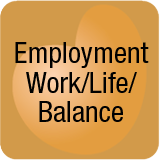10 Warning Signs of Crossing Professional Boundaries
 As increasing emotional and physical stress is experienced by family caregivers, care professionals working in healthcare offices, care communities, and care agencies have a heightened responsibility to maintain clear and appropriate professional boundaries.
As increasing emotional and physical stress is experienced by family caregivers, care professionals working in healthcare offices, care communities, and care agencies have a heightened responsibility to maintain clear and appropriate professional boundaries.
Boundaries are often crossed unintentionally and without thought. As a healthcare professional do you understand the professional boundaries you are to maintain?
If you are a healthcare professional you may feel pulled into family disagreements. You may be tempted to make recommendations about areas outside of your scope of practice or feel that you understand problems better than the family or other members of your care team.
If any of these examples described your behaviors, you have violated professional boundaries. You cannot be both a friend to a client and a caring professional.
Professional Boundaries Protect Employees and Clients
Professional boundaries in healthcare settings are created to protect the employee, the client or patient, and family members. Caring staff often become over-involved beyond their day-to-day tasks or responsibilities.
The idea of good customer service may be misinterpreted by care staff to provide personal information rather than limiting focus on the client. When clients ask personal questions or cross boundaries, it is the responsibility of the care staff to maintain professional boundaries and redirect the conversation. Crossing a boundary is like opening a door and finding yourself on the other side unable to reverse the actions that have occurred.
Clients and family members are vulnerable to care professionals who appear to be in positions of power. It is important to avoid caring for family, friends, or people with whom you do business. In these situations, it is best to disclose the personal relationship and asked to be re-assigned. Maintaining an impartial relationship supports professional boundaries.
 As healthcare professionals, it’s important to make time for self-care and enjoy small moments of peace. Taking a quick walk outside, listening to a favorite song, or stopping to smell the flowers—even if they are on someone else’s desk—can give us the quick break we need to readjust our thoughts.
As healthcare professionals, it’s important to make time for self-care and enjoy small moments of peace. Taking a quick walk outside, listening to a favorite song, or stopping to smell the flowers—even if they are on someone else’s desk—can give us the quick break we need to readjust our thoughts.
Identifying Professional Boundary Violations
Uncertain whether you’ve ever violated a professional boundary? Here are 10 tips to let you know if you currently are or have in the past crossed professional boundaries. These tips are also valuable for maintaining positive boundaries with family members and friends.
- Relaying information to a client about personal family problems or needs that may result in worry or concern. Your role is to serve and to relieve the client of burdens, not to place your personal burdens and worries on the client.
- Speaking poorly of co-workers or supervisors when they are not present. This includes speaking negatively about the company for whom you work. The old saying “if you can’t say something nice, don’t say anything at all,” applies.
- Giving advice to clients and family members about subjects that are out of your area of practice or expertise. You are in a position of influence and incorrect information may result in harm to the client.
- Agreeing to keep secrets with the client or other care staff. Not passing along information about behaviors to supervisory staff that may be viewed as negative or concerning. The client is not your “territory” to protect.
- Spending breaks or time with the client when you are not scheduled to work. This includes having lunch with a client and eating food provided for them.
- Feeling that you know the client better than anyone else. Taking actions to work against family members or other professionals. Advocating beyond your scope of practice is not your role.
- Accepting gifts that include money or personal items. An exchange of personal items should never occur. If a client wishes to give you a gift, direct the client to your supervisor who can explain company gift policies.
- Giving a client your personal contact information, money, or personal items. Repeat, you are not their friend. You are not their family member.
- Being unable to think about subjects other than the client or their family because you feel responsible for the outcome of the situation. Becoming obsessed with the situation of a client is unhealthy for you and for the client. Ask to be removed from the situation.
- Accepting invitations to go out to dinner with the client’s family or other personal invitations. The client and their family are not your family or your friends. Express thanks for the invitation and decline.
Violating professional boundaries is often an unintentional act. Caring professionals may be in a daily routine and less aware of how their actions may be perceived by others. Some professionals may be seeking to fulfill social and emotional needs in the workplace. As with family caregivers, caring professionals may have a limited network of personal support. This absence of personal support, makes interactions in the workplace more challenging when limitations between work and personal life blur.
Caring Professionals Have a Duty to Model Behavior
As professionals, the focus should remain on client needs, safety, and health. As with family caregivers who believe they have to be and do it all, caring professionals suffer from similar beliefs of being superman or superwoman.
None of us can be all things to all people or rush in to save the day. While helping others makes us feel good, it should not place us in a position of feeling emotionally tied, uncomfortable, or stressed. If we are experiencing personal problems outside of the workplace, we may be more susceptible to being pulled to cross professional boundaries.
As the stress experienced by family caregivers increases, more emotional support or time may be asked of care professionals. A responsibility exists to model appropriate behavior for clients and family members.
Support for family caregivers exists by way of caregiver support groups and individual counseling. Referrals to others specializing in the needs of the client or family are also appropriate. When in doubt about professional boundary concerns, contact a supervisor for recommendations.
Looking for more resources for caregiving families or yourself, check out Pamela’s complimentary online webinar program about caring for elderly loved ones.
© 2018, 2022 Pamela D. Wilson, All Rights Reserved.
Return to Employment/Work/Life/Balance PageReturn to All Category Page



